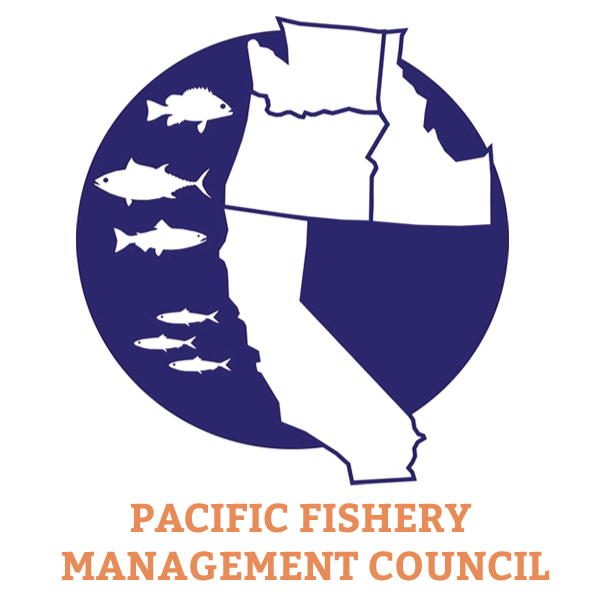EDITOR’S NOTE: This report has been corrected to reflect that Trish Hutson is executive director of the Clallam Bay-Sekiu Chamber of Commerce.
FORKS — Business and fishing communities were getting their sea legs Tuesday in Forks, Clallam Bay and Sekiu after learning of a possible coastal salmon fishing ban for the 2016 season.
The West End is where fishing is king — and where commercial and recreational ocean coho and king salmon could be untouchable later this year, beginning this summer.
The Pacific Fishery Management Council, which announced Monday the prohibition as one of three options for public review, will conduct a hearing on the alternatives March 28 in Westport.
The council will consider the options at its April 8-14 meeting in Vancouver.
State officials and business and fishing industry leaders were hopeful Tuesday a middle ground could be reached and a fishing prohibition would not be necessary.
Proposed by state, tribal and federal fishery managers, the measures would not extend to fishing in the Strait of Juan de Fuca or on North Olympic Peninsula rivers.
Depleted salmon runs
The goal: restore depleted salmon runs.
In 2015, the Fishery Management Council established nontreaty recreational ocean fishing quotas of 64,000 chinook and 150,800 coho.
Compared to 2015 limits, the 2016 alternatives call for similar ocean chinook catches and severely lower coho limits at the top end to no coho or chinook fishing at all at the bottom.
The state Department of Fish and Wildlife released the following non-treaty recreational fishing quota alternatives Monday, with some variation in early-season fisheries:
■ Alternative 1: 58,600 chinook, 37,800 coho.
■ Alternative 2: 30,000 chinook, 14,700 coho.
■ Alternative 3: No commercial or recreational salmon fisheries in coastal water.
‘Total disaster’
“The zero option would be a total disaster to the recreational side of fishing,” Joey Lawrence, owner of Big Salmon Resort in Neah Bay, said Tuesday.
Lawrence predicted such a ban would have an impact on both Clallam and Jefferson counties.
“These people have to pass through two or three counties to get to Neah Bay,” he said.
“The ripple effect would be enormous.”
The Portland, Ore.-based Fishery Management Council establishes fishing seasons in ocean waters 3 miles to 200 miles off the Pacific Coast.
Council members will consider the alternatives as they start the process of setting annual catch-limits for all recreational and commercial fishing — including tribal fishing.
Limits, which haven’t been established for tribes yet, eventually would affect those in Clallam and Jefferson counties.
“We as fishery managers are still negotiating on proposals,” said the Quileute Tribal Council in a statement released Tuesday.
“Basically, any proposal on the table right now is going to impact the tribes fisheries for salmon this year, both in the ocean and in-river.
“To what degree we still aren’t sure about yet.
“We are hoping to have some level of fishery for both the ocean and river but it will not be at a level that we fished last year.”
Lorraine Loomis, chair of the Northwest Indian Fisheries Commission said she would reluctantly go along with a no-fishing alternative.
“We hope it doesn’t come to that,” she said Monday in a prepared statement.
“Conservation is our sole focus as we work to build these stocks.”
Kyle Adicks, a salmon analyst for the state Department of Fish and Wildlife, said he wouldn’t put odds on one extreme or the other.
Hope for the middle
“I’m hoping it’s very likely we wind up somewhere in the middle,” he said.
“We’ll be talking about what we can put out in the ocean and the minimal impact, particularly on coho stocks.
“We’ll be looking at what we can put out there without impacting those stocks too heavily.”
Trish Hutson, executive director of the Clallam Bay-Sekiu Chamber of Commerce, does not want a replay of 1994, the last time ocean salmon fishing was prohibited in coastal waters.
Cut tourism
“It probably cut our tourism by half to three-quarters,” she said.
“Shutting down coho and chinook completely would be devastating.
“I understand we have to preserve our fish, and I don’t want to lose that industry altogether, but we also don’t want to lose our economy.”
Any reduction in quota affects the community financially and personally, said Tom Burlingame of Sekiu, a member of Fish and Wildlife’s Puget Sound Recreational Coastal Bottomfish and Halibut Advisory Group.
Burlingame, owner of Excel Fishing Charters, said fish run projections in the Strait of Juan de Fuca and Puget Sound indicate that depleted coho runs eventually could lead to fishing restrictions to the Strait.
“Most of the rivers including the Dungeness and some around [the Port Angeles area] are not projected to make escapement goals,” Burlingame said.
“It would just make sense that there are going to be further restrictions in the Strait.”
Chinook numbers, he said, are far above the five-year average.
Predictions wrong
But optimistic predictions for coho did not pan out.
“They were paper fish,” Burlingame said. “When reality hit last summer, they did not materialize.”
But he maintained some optimism.
“We can meet our conservation goals,” Burlingame said.
“I think we can meet them and still conduct a fishery.”
The chinook and coho quotas that the Fishery Management Council will approve in April will be part of the council’s 2016 plan for marine and freshwater fisheries throughout the state’s coastal areas, Puget Sound and the Columbia River.
Those fisheries are still being developed by state and tribal co-managers.
The public can comment on the proposed ocean alternatives as well as on other proposed salmon fisheries at http://tinyurl.com/PDN-fishquotas.
________
Senior Staff Writer Paul Gottlieb can be reached at 360-452-2345, ext. 55650, or at pgottlieb@peninsuladailynews.com.

